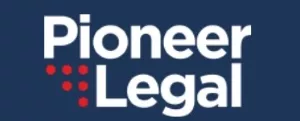The Prevention of Money-Laundering Act, 2002 ("PMLA") seeks to prevent money-laundering and to provide for confiscation of property derived from, or involved in, money-laundering and for matters connected therewith or incidental thereto. PMLA requires 'reporting entities' (i.e., a banking company, financial institution, intermediary or a person carrying on a designated business or profession) to, inter alia, verify the identity of clients and their beneficial owners, maintain records of transactions, and conduct enhanced due diligence for certain specified transactions.1
The Central Government, in consultation with the Reserve Bank of India, had issued the Prevention of Money-Laundering (Maintenance of Records) Rules, 2005 ("PML Rules"), pertaining to maintenance of records of the nature and value of transactions, the procedure and manner of maintaining and time for furnishing of information, and verification of client records of the banking companies, financial institutions and intermediaries.
On March 07, 2023, the Central Government notified the Prevention of Money-Laundering (Maintenance of Records) Amendment Rules, 2023 ("Amendment Rules"), inter alia, incorporating some of the FATF Recommendations in the PML Rules. The key amendments are as follows:
Definition of 'group'
Amendment: The Amendment Rules have inserted the definition of 'group', referring to the definition thereof under the Income-tax Act, 1961.2 The definition refers to a parent entity and all entities for which, for reasons of ownership of control, in the country/territory where the parent entity is resident, consolidated financial statements are required to be prepared under law or accounting standards or would be required to be prepared if the equity shares of any of the entities were listed on a stock exchange.3 Further, the Amendment Rules incorporate an obligation on such groups to implement group-wide policies for discharging obligations under Chapter IV of the PMLA.4
Effect: Chapter IV of the PMLA levies certain obligations (including maintenance of records, reporting obligations, identity verification, due diligence) on reporting entities. While this amendment does not expand the requirement of fulfilling these obligations under the PMLA to all group entities, it requires a group-wide policy to be established to further the fulfilment of obligations by the relevant reporting entity within the group. This is in line with FATF Recommendation 18 (Internal controls and foreign branches and subsidiaries), which states that "financial groups should be required to implement group-wide programmes against money laundering and terrorist financing, including policies and procedures for sharing information within the group for AML/CFT purposes".5
Definition of 'politically exposed persons'
Amendment: 'Politically exposed persons' are now defined under the PML Rules as "individuals who have been entrusted with prominent public functions by a foreign country, including the heads of States or Governments, senior politicians, senior government or judicial or military officers, senior executives of state-owned corporations and important political party officials".6
Effect: The insertion of the definition is aligned with FATF Recommendation 12, which pertains to politically exposed persons.7 While the term is now defined in the PML Rules, it is not used or referred to anywhere else in the PML Rules itself. The insertion appears to be intended towards simply aligning the PML Rules with the Reserve Bank of India's Master Direction - Know Your Customer (KYC) Direction, 2016 ("KYC Master Directions"), which provides for the same definition of politically exposed persons.8 These Master Directions, issued in relation to the PMLA and the PML Rules, set out certain enhanced due diligence requirements for accounts of politically exposed persons.
Tightening of beneficial ownership
Amendment: The definition of "controlling owner interest" (for the purposes of ascertaining the beneficial owner in a company that is a client of a reporting entity) has been amended to decrease the requirement of the ownership or entitlement to the shares or capital or profits of the company from 25% to 10%.9 Similarly, where the client of a reporting entity is a trust, the identification of a beneficial owner now includes identification of beneficiaries with 10% or more interest in the trust, down from the earlier 15%.10
Effect: Under Rule 9(1) of the PML Rules, every reporting entity is required to, at the time of commencement of an account-based relationship, determine whether a client is acting on behalf of a beneficial owner, identify the beneficial owner, and take all steps to verify the identity of the beneficial owner. Rule 9(3) of the PML Rules provides for the determination of whom a beneficial owner is. In this regard, where the client is a company, the beneficial owner is "the natural person(s), who, whether acting alone or together, or through one or more juridical person, has a controlling ownership interest or who exercises control through other means".
Prior to the notification of the Amendment Rules, "controlling owner interest" was defined as having ownership or entitlement to more than 25% of shares or capital or profits of the company. This has now been brought down to 10%, widening the scope of a beneficial owner. This appears to be in line with the definition of 'significant beneficial ownership' under the Companies (Significant Beneficial Owners) Rules, 2018.11 It is interesting to note that this amendment takes place around the same time that the Securities and Exchange Board of India (SEBI) is reportedly "nudging" founders with a stake of 10% or more in their companies to classify themselves as promoters while filing a draft prospectus.12 It must be noted, however, that the KYC Master Directions, which are issued in relation to the PMLA and the PML Rules, still use the 25% threshold in the definition of beneficial owners.13 Presumably, the KYC Master Directions will be subsequently amended to align the same with the PML Rules.
This amendment will also have other consequences in terms of, for instance, KYC requirements for foreign portfolio investors (FPIs) at the time of registration, reclassification, etc. with SEBI. SEBI's Master Circular for Foreign Portfolio Investors, Designated Depository Participants and Eligible Foreign Investor, issued on December 19, 2022, sets out KYC requirements for FPIs, including identification and verification of beneficial owners in accordance with the PML Rules.14
A similar decrease has been made in the interest threshold for beneficiaries of a trust. Notably, however, the corresponding thresholds for partnership firms and unincorporated associations or bodies of association have not been changed; these remain at the present 15%.15
Additional information/documentation requirement
Amendment: Additions have been made to the list of documents and information required to be submitted to reporting entities by their clients, including:
- for a company, the names of the relevant persons holding senior management position; and the registered office and the principal place of its business, if different;
- for partnership firms, the names of all partners and the address of the registered office, and the principal place of its business, if different; and
- for trusts, the names of the beneficiaries, trustees, settlor and authors of the trust and the address of the registered office of the trust; and list of trustees and documents as are required for individuals under Rule 9(4) of the PML Rules for those discharging role as trustee and authorised to transact on behalf of the trust.16
Effect: The Amendment Rules have now included additional information that is required to be submitted to the reporting entities, to assist with the reporting entities' obligations pertaining to identity verification and identification of beneficial owners. The documents required for individuals under Rule 9(4) of the PML Rules include Aadhaar, PAN, and other documents as may be required by the reporting entity.
Registration on DARPAN portal
Amendment: Banking companies, financial institutions, and intermediaries are now required to register clients that are non-profit organisations on the DARPAN Portal of NITI Aayog, if not already registered, and maintain such registration records for a period of five years after the business relationship between the client and the reporting entity has ended or the account has been closed, whichever is later.17
Effect: The DARPAN portal is aimed at creating a repository of voluntary organisations (VOs) and non-governmental organisations (NGOs), with the purpose of facilitating collaboration between such entities and governmental departments and bodies. While it is not mandatory for NGOs to register on the portal, the unique ID generated upon registration is required when applying for governmental grants.18 The Amendment Rules now require non-profit organisations (as defined under the PML Rules) to be registered on the DARPAN portal.
Footnotes
1. Chapter IV, Prevention of Money-Laundering Act, 2002.
2. Rule 2(1)(cba), Prevention of Money-Laundering (Maintenance of Records) Rules, 2005.
3. Section 286(9)(e), Income-tax Act, 1961.
4. Rule 3A, Prevention of Money-Laundering (Maintenance of Records) Rules, 2005.
5. International Standards on Combating Money Laundering and the Financing of Terrorism & Proliferation: The FATF Recommendations, available at https://www.fatf-gafi.org/content/dam/recommandations/FATF%20Recommendations%202012.pdf.coredownload.inline.pdf.
6. Rule 2(1)(db), Prevention of Money-Laundering (Maintenance of Records) Rules, 2005.
7. Ibid, note 5.
8. Master Direction - Know Your Customer (KYC) Direction, 2016, Reserve Bank of India, available at https://www.rbi.org.in/Scripts/BS_ViewMasDirections.aspx?id=11566.
9. Rule 9(3)(a), Prevention of Money-Laundering (Maintenance of Records) Rules, 2005.
10. Rule 9(3)(e), Prevention of Money-Laundering (Maintenance of Records) Rules, 2005.
11. Rule 2(1)(h), Companies (Significant Beneficial Owners) Rules, 2018.
12. Sebi moots promoter tag for founders holding 10%, Financial Express, available at https://www.financialexpress.com/market/sebi-moots-promoter-tag-for-founders-holding-10/3000403/.
13. Ibid, note 8.
14. Master Circular for Foreign Portfolio Investors, Designated Depository Participants and Eligible Foreign Investors, Securities and Exchange Board of India, available at https://www.sebi.gov.in/legal/master-circulars/dec-2022/master-circular-for-foreign-portfolio-investors-designated-depository-participants-and-eligible-foreign-investors_66356.html.
15. Rule 9(3)(b) and Rule 9(3)(c), Prevention of Money-Laundering (Maintenance of Records) Rules, 2005.
16. Rule 9(6), Rule 9(7), and Rule 9(8), Prevention of Money-Laundering (Maintenance of Records) Rules, 2005.
17. Rule 9(9A), Prevention of Money-Laundering (Maintenance of Records) Rules, 2005.
18. NGO DARPAN, available at https://ngodarpan.gov.in/.
The content of this article is intended to provide a general guide to the subject matter. Specialist advice should be sought about your specific circumstances.


